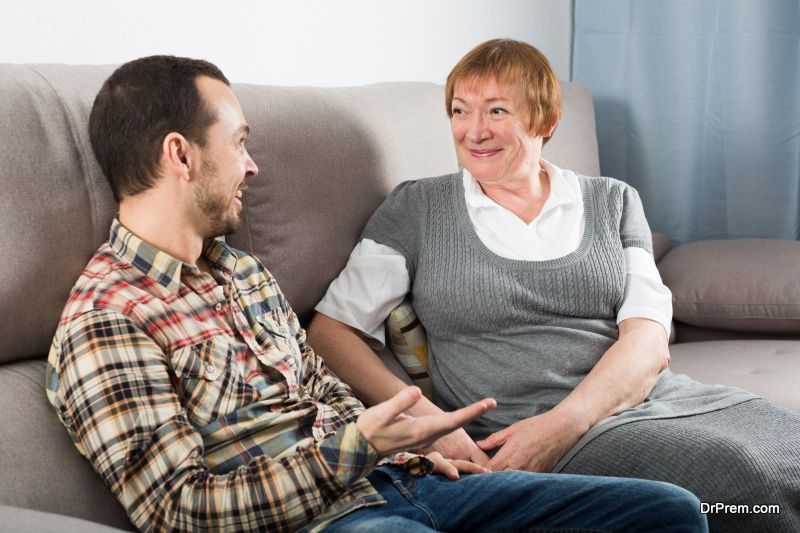Watching your parents get older can be difficult. Elderly parents need the care and love they’ve given you for decades, and many of us have to decide whether or not to move an aging parent into our homes. Moving your parents in with you is one way to return the love and care they’ve provided you for your entire life, but it can also come with challenges. If you’re planning to move your elderly parent into your home, consider these tips.
Be Realistic About the Type of Care You Can Provide
You may want have your parent move in with you, but you must be realistic about the level of care you can provide. Before moving your parent into your home, consider these factors:
- Are you able to provide the appropriate care? Speak to your parent’s doctor about their needs, and determine how you can realistically provide care to them.
- Do you have the time? If you have children or a demanding job, you’ll need to reconfigure your schedule to accommodate your parents.
- Do you have the space? If your parent moves in, where will you house them? Unless you have an extra guest bedroom or a mother-in-law suite, you may need to build an addition or move around your current living arrangements.
You May Need to Make Changes to Your Home
You may need to adjust your home to suit your parent’s needs. You might have upgrades to your home to accommodate your parents for now and in the future. You need to consider two things: comfort and safety. If you live in a multi-level house, you’ll have to tackle the issue of stairs. Most people choose to house their elderly loved ones in the bottom level, but if this isn’t applicable for your living situation, you may need to install a stair lift device.
You’ll also need to modify your bathroom. You may need to knock down walls or expand doorways to make the bathroom wheelchair-friendly, and you may include grab rails and toilet support rails. Don’t forget to assess the shower or bathtub for any necessary modifications, like a shower seat.
Your Family Will Be Affected By the Move
The rest of your family will be affected by this move, and anyone who lives in your home will face a significant shift in their daily life. To make room for your parent, you may move your children to share a room. Your family’s schedule may also change, and weekend getaways will be much harder with your new housemate. To keep up with the new household, your spouse or partner will have to work with you to take care of your kids and your parent.
You May Need to Hire a Professional Caretaker
You may want to care for your parent on your own, but life can change in an instant, and we’re not always fully equipped to handle the difficulties that come with caring for an aging relative. Understand that asking for professional help is not giving up. In many cases, additional help is necessary and beneficial for both you and your loved ones. With a professional caregiver, you’ll have a more flexible schedule, and be able to come and go more easily. You’ll also be able to rely on an experienced professional who understands the ins and outs of providing proper care to your parent. A professional caregiver doesn’t necessarily need to be in your home 24/7. If your parent can still be on their own for hours at a time, you can buy medical alert devices that they can use in the case of an emergency. Combining this extra measure of protection with the occasional visit by a caretaker can provide peace of mind while you go about your daily life.
Before inviting an aging parent to live in your home, consider the above tips and decide if this is the appropriate course of action.
Article Submitted By Community Writer






